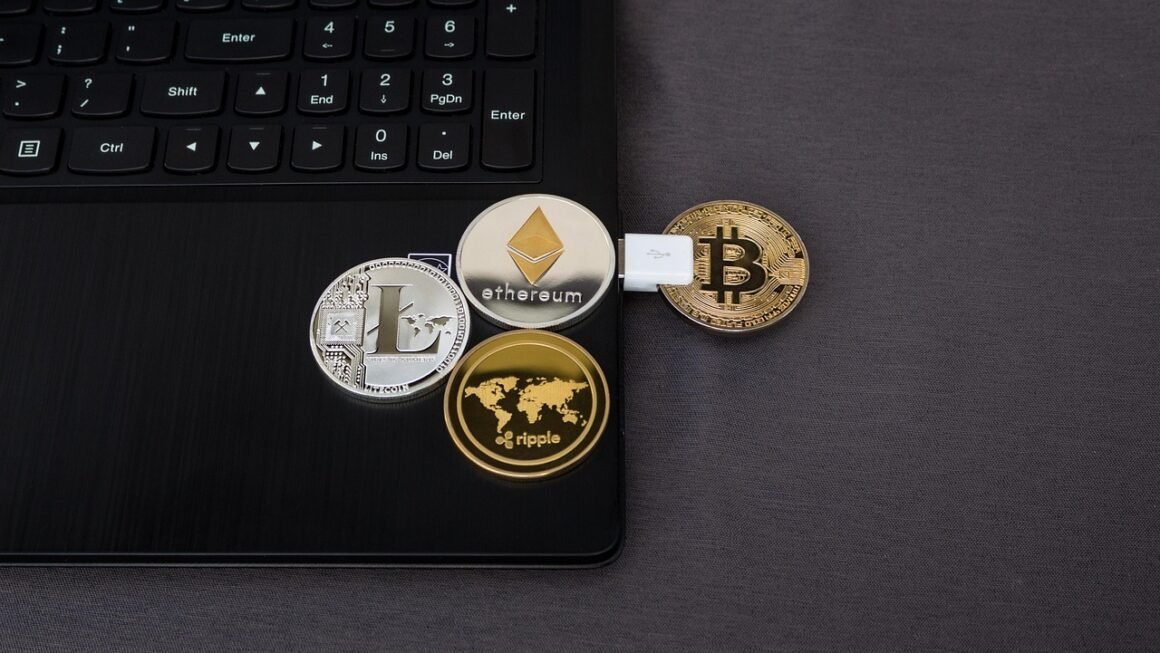In the ever-evolving landscape of cryptocurrency, privacy remains a paramount concern for many users. While Bitcoin and other popular cryptocurrencies offer a degree of pseudonymity, transactions are often traceable on the public blockchain. This has fueled the development of privacy coins – digital currencies designed to obfuscate transaction details, providing users with enhanced financial privacy. These coins employ various cryptographic techniques to shield sender and receiver identities, as well as transaction amounts, making it more difficult to link transactions to specific individuals or entities. Let’s dive deep into the world of privacy coins and explore how they work.
Understanding Privacy Coins
What are Privacy Coins?
Privacy coins are cryptocurrencies that enhance the anonymity of transactions compared to more transparent cryptocurrencies like Bitcoin. They achieve this through various methods, aiming to make it difficult or impossible to trace transactions back to their origin or destination. Unlike Bitcoin, where transactions can be linked to wallet addresses, privacy coins strive to sever this connection.
- Core Goal: To provide a level of financial privacy akin to using cash.
- Importance: Protecting users from surveillance and potential discrimination based on their transaction history.
- Regulation: Navigating regulatory compliance in various jurisdictions remains a significant challenge for privacy coins.
How do Privacy Coins Work?
Privacy coins utilize different cryptographic techniques to achieve anonymity. Here are some of the most common:
- Ring Signatures: A digital signature made by one of a group of users, but without revealing which user actually signed. Monero (XMR) is a prominent example that utilizes ring signatures to conceal the sender’s identity. Instead of a single signature, a ring signature mixes the sender’s key with the public keys of other users (decoys) in a “ring,” making it computationally infeasible to determine which key actually signed the transaction.
- Confidential Transactions: These hide the transaction amount. Monero also uses Confidential Transactions (CT) to obscure the amounts being transferred. CT employs cryptographic commitments to ensure that the sum of inputs equals the sum of outputs without revealing the actual values.
- zk-SNARKs (Zero-Knowledge Succinct Non-Interactive Argument of Knowledge): A zero-knowledge proof allows one party to prove to another that a statement is true without revealing any information beyond the validity of the statement itself. Zcash (ZEC) uses zk-SNARKs to prove that transactions are valid without disclosing the sender, receiver, or transaction amount. Think of it like proving you know the answer to a math problem without revealing the solution itself.
- Stealth Addresses: These are one-time addresses created for each transaction, making it difficult to link multiple transactions to a single recipient. Monero uses stealth addresses to prevent others from associating multiple incoming payments to the same user. Each transaction creates a unique address, ensuring unlinkability.
Examples of Privacy Coins
- Monero (XMR): A pioneer in the privacy coin space, Monero uses ring signatures, Confidential Transactions, and stealth addresses to provide strong privacy features. It is considered one of the most widely used privacy coins.
Key Features: Dynamic block size to handle increased transaction volume, active development community.
Real-world use case: Individuals who require discreet transactions, businesses needing to maintain confidentiality.
- Zcash (ZEC): Zcash utilizes zk-SNARKs to provide strong privacy, offering both shielded (private) and transparent transactions. Users can choose to send transactions publicly or shield them for enhanced privacy.
Key Features: Selective disclosure – users can selectively reveal transaction details if required for auditing or compliance.
Real-world use case: Enterprises seeking to leverage blockchain technology while maintaining data privacy, institutions requiring auditable yet private transactions.
- Dash (DASH): While not a pure privacy coin, Dash offers PrivateSend, a coin mixing service that enhances transaction anonymity.
Key Features: Masternode network that facilitates PrivateSend, instant transactions (InstantSend).
Real-world use case: Smaller, everyday transactions where some level of privacy is desired, users seeking faster transaction confirmation times.
Benefits of Using Privacy Coins
Enhanced Financial Privacy
This is the primary advantage. Privacy coins prevent prying eyes from tracking your spending habits, account balances, or financial activities.
- Protection from Surveillance: Prevents third parties from monitoring your financial transactions.
- Prevention of Discrimination: Reduces the risk of being discriminated against based on your transaction history.
- Improved Security: By obfuscating transaction details, privacy coins can make it harder for attackers to target specific individuals or businesses.
Greater Control over Personal Data
Users have more control over who can access their financial information.
- Reduced Data Exposure: Minimizes the amount of personal data exposed on the blockchain.
- Empowerment: Gives individuals greater autonomy over their financial lives.
Potential for Censorship Resistance
Privacy coins can make it more difficult for governments or other entities to censor transactions.
- Unrestricted Transactions: Facilitates transactions without fear of censorship or interference.
- Freedom of Exchange: Enables individuals to participate in the global economy without limitations.
Challenges and Controversies
Regulatory Scrutiny
Privacy coins face increased scrutiny from regulatory bodies due to concerns about their potential use in illicit activities.
- Anti-Money Laundering (AML) Concerns: Regulators worry that privacy coins can be used to launder money or finance terrorism.
- Compliance Requirements: Exchanges and other cryptocurrency businesses may face challenges in complying with regulations when dealing with privacy coins.
- Delisting Risks: Some exchanges have delisted privacy coins to avoid regulatory issues.
Scalability Issues
Some privacy coin technologies, such as zk-SNARKs, can be computationally intensive and may impact transaction processing speed and scalability.
- Transaction Size: Privacy-enhancing features can increase transaction sizes, leading to higher fees and slower confirmation times.
- Resource Requirements: Generating and verifying zero-knowledge proofs requires significant computational resources.
Potential for Illicit Use
While privacy is a legitimate concern for many users, privacy coins can also be used for illegal activities, such as money laundering and tax evasion.
- Darknet Markets: Privacy coins are often used on darknet markets for purchasing illegal goods and services.
- Financial Crime: The anonymity offered by privacy coins can make it easier to conceal illicit funds.
Choosing the Right Privacy Coin
Assess Your Needs
Determine the level of privacy you require and the specific features that are important to you.
- Transaction Volume: Consider the frequency and size of your transactions.
- Security Requirements: Evaluate the security features of each privacy coin.
- Regulatory Compliance: Be aware of the regulatory implications of using privacy coins in your jurisdiction.
Research Different Coins
Explore the various privacy coins available, their underlying technologies, and their communities.
- Read Whitepapers: Understand the technical details of each coin.
- Review Community Forums: Gauge the level of support and development activity.
- Check Exchange Listings: Ensure the coin is available on reputable exchanges.
Consider Trade-offs
Be aware of the trade-offs between privacy, scalability, and regulatory compliance.
- Performance vs. Privacy: Higher levels of privacy may come at the cost of slower transaction speeds or higher fees.
- Centralization vs. Decentralization: Some privacy coins may rely on centralized infrastructure, which could compromise their privacy.
Conclusion
Privacy coins offer a compelling solution for users seeking enhanced financial privacy in the digital age. While they present valuable benefits like increased control over personal data and potential censorship resistance, challenges such as regulatory scrutiny and scalability issues must be considered. By carefully assessing their needs, researching different coins, and understanding the trade-offs, users can make informed decisions about whether to incorporate privacy coins into their cryptocurrency portfolio. The future of privacy coins hinges on navigating the evolving regulatory landscape and addressing technical challenges to ensure secure and scalable privacy solutions for everyone.



